Ryan L. McAvoy
Learning to Remember, Forget and Ignore using Attention Control in Memory
Sep 28, 2018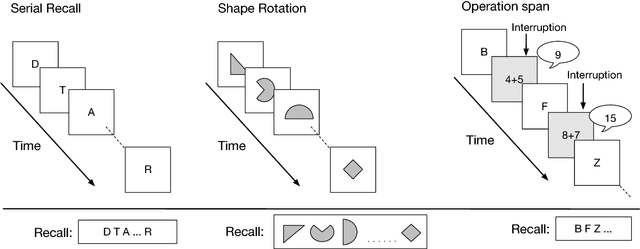
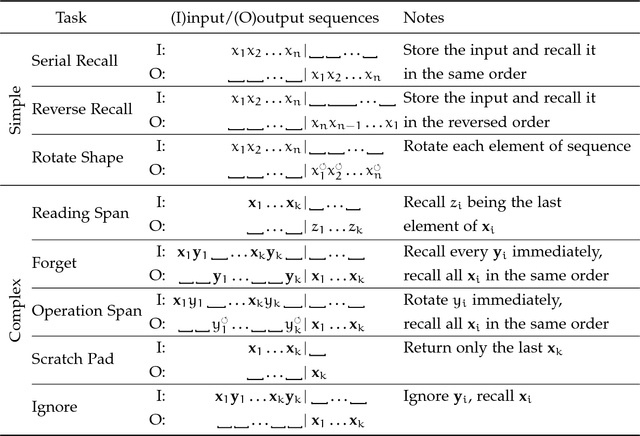

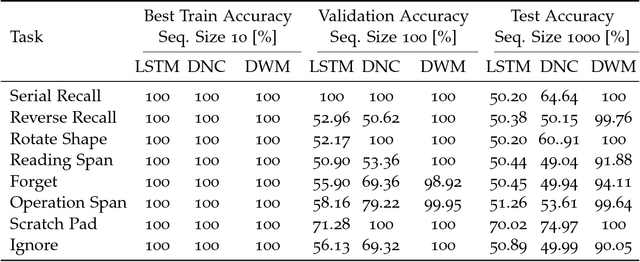
Abstract:Typical neural networks with external memory do not effectively separate capacity for episodic and working memory as is required for reasoning in humans. Applying knowledge gained from psychological studies, we designed a new model called Differentiable Working Memory (DWM) in order to specifically emulate human working memory. As it shows the same functional characteristics as working memory, it robustly learns psychology inspired tasks and converges faster than comparable state-of-the-art models. Moreover, the DWM model successfully generalizes to sequences two orders of magnitude longer than the ones used in training. Our in-depth analysis shows that the behavior of DWM is interpretable and that it learns to have fine control over memory, allowing it to retain, ignore or forget information based on its relevance.
Using Multi-task and Transfer Learning to Solve Working Memory Tasks
Sep 28, 2018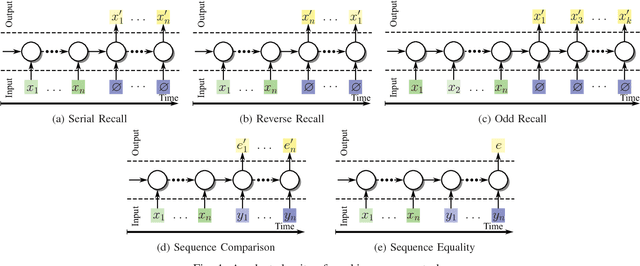
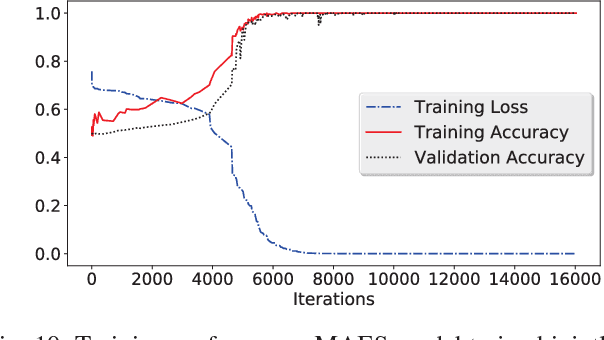
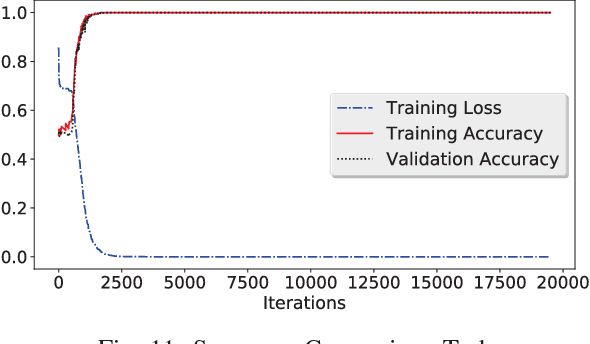
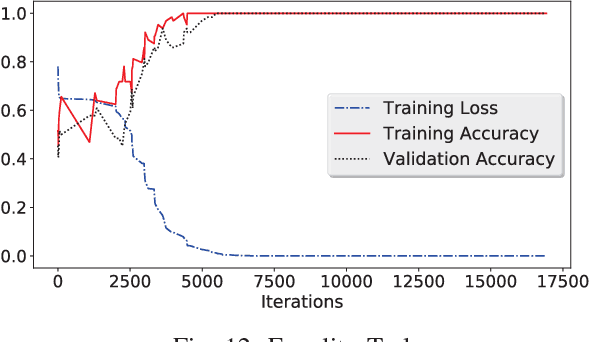
Abstract:We propose a new architecture called Memory-Augmented Encoder-Solver (MAES) that enables transfer learning to solve complex working memory tasks adapted from cognitive psychology. It uses dual recurrent neural network controllers, inside the encoder and solver, respectively, that interface with a shared memory module and is completely differentiable. We study different types of encoders in a systematic manner and demonstrate a unique advantage of multi-task learning in obtaining the best possible encoder. We show by extensive experimentation that the trained MAES models achieve task-size generalization, i.e., they are capable of handling sequential inputs 50 times longer than seen during training, with appropriately large memory modules. We demonstrate that the performance achieved by MAES far outperforms existing and well-known models such as the LSTM, NTM and DNC on the entire suite of tasks.
 Add to Chrome
Add to Chrome Add to Firefox
Add to Firefox Add to Edge
Add to Edge